Quick Commerce (QC) stumbled in Indonesia (and elsewhere) thanks to some business model hiccups. But look at India – QC’s not just surviving, it’s stealing thunder from mainstream e-commerce giants.
This playbook could be the key to unlocking QC’s true potential in Indonesia. It’s a challenge, but winnable. Grab and Astro – the QC frontrunners – can reignite the QC flame in Indonesia, potentially setting it up for success in rest of Southeast Asia.
Recapping the events that led to the downfall of first-wave QC players in Indonesia…
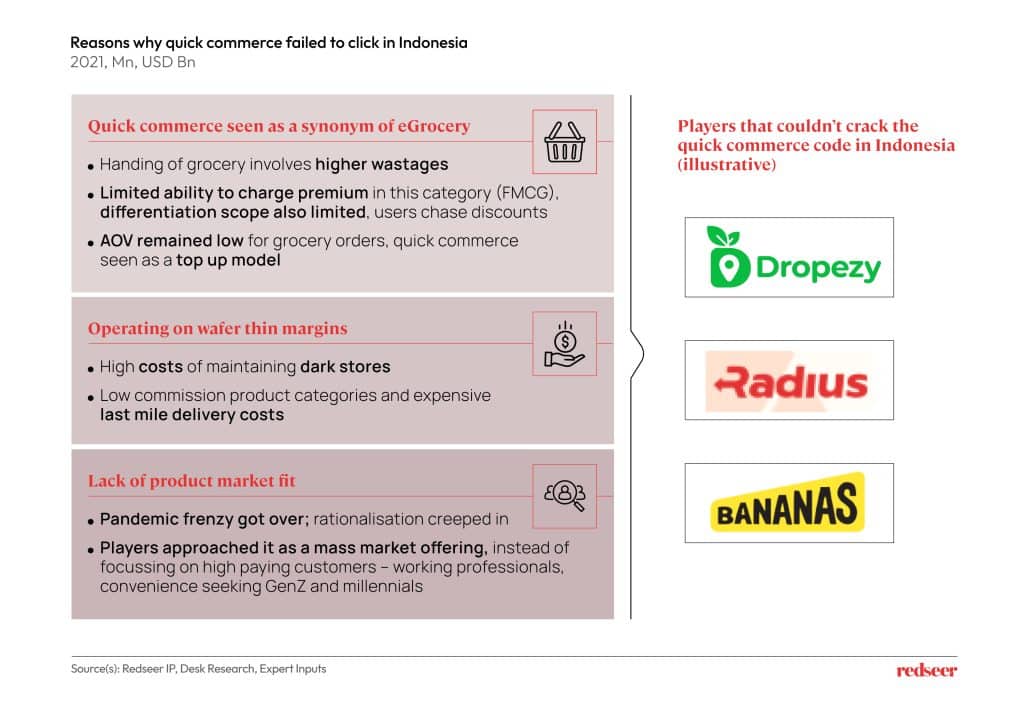
The quick commerce players around the globe have failed due to various reasons the most important of which are quick commerce being focussed heavily on groceries, high supply chain costs leading to wafer-thin margins, and lack of targeting appropriate customer market.
The first piece of QC puzzle: Supply – Rapid-testing Dark Store Unit Economics
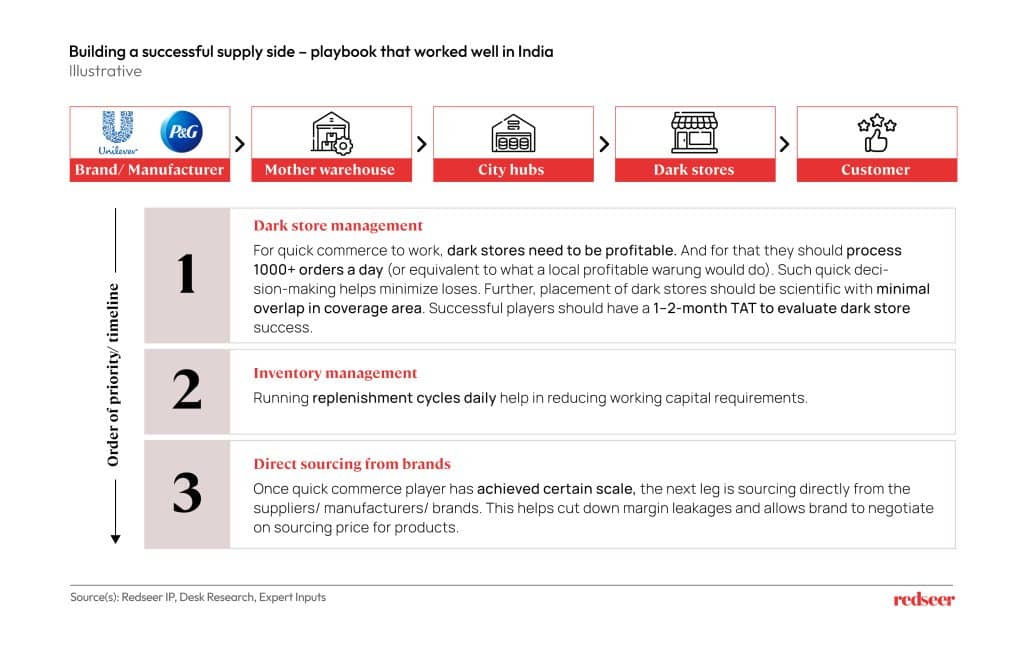
The above chart shows the chronology and critical levers that need to work well within the supply chain of a quick commerce player to become profitable.
The next piece: Demand – Solving for instant gratification and impulsive needs
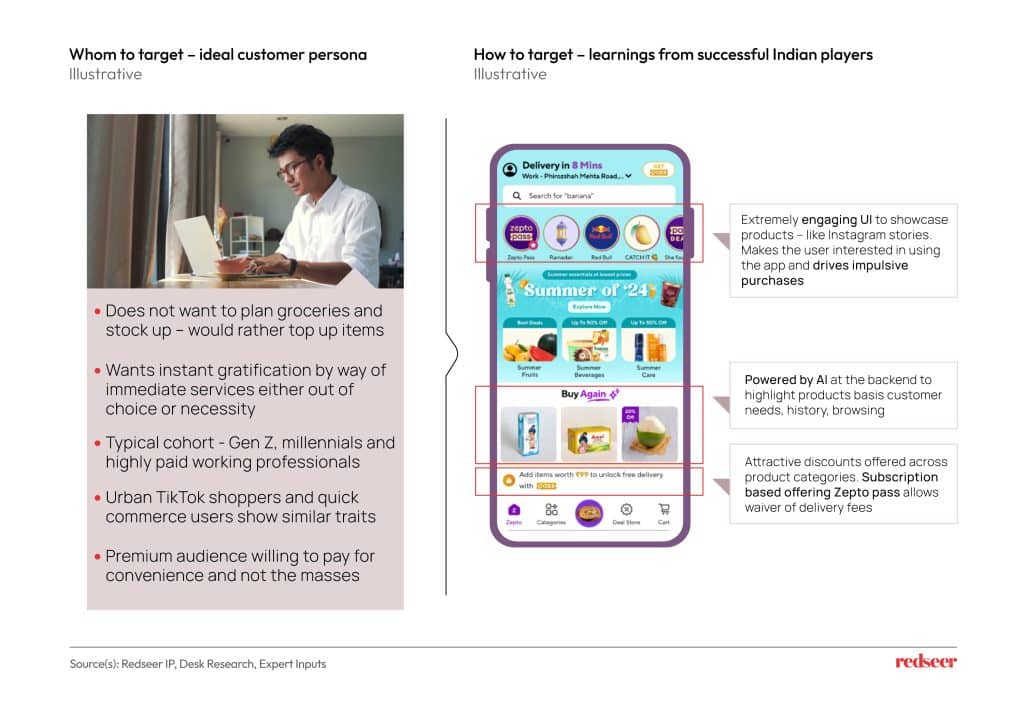
What TikTok did to fashion and BPC e-commerce in Indonesia, the same Zepto and Blinkit have been capable of doing in India quick commerce. Provide an engaging user interface with predictive AI tools to solve user needs leading to instant gratification and impulsive buying.
Results? Rapid GMV traction, widening product portfolio and wrestling share from horizontal players. India playbook is delivering a punch…
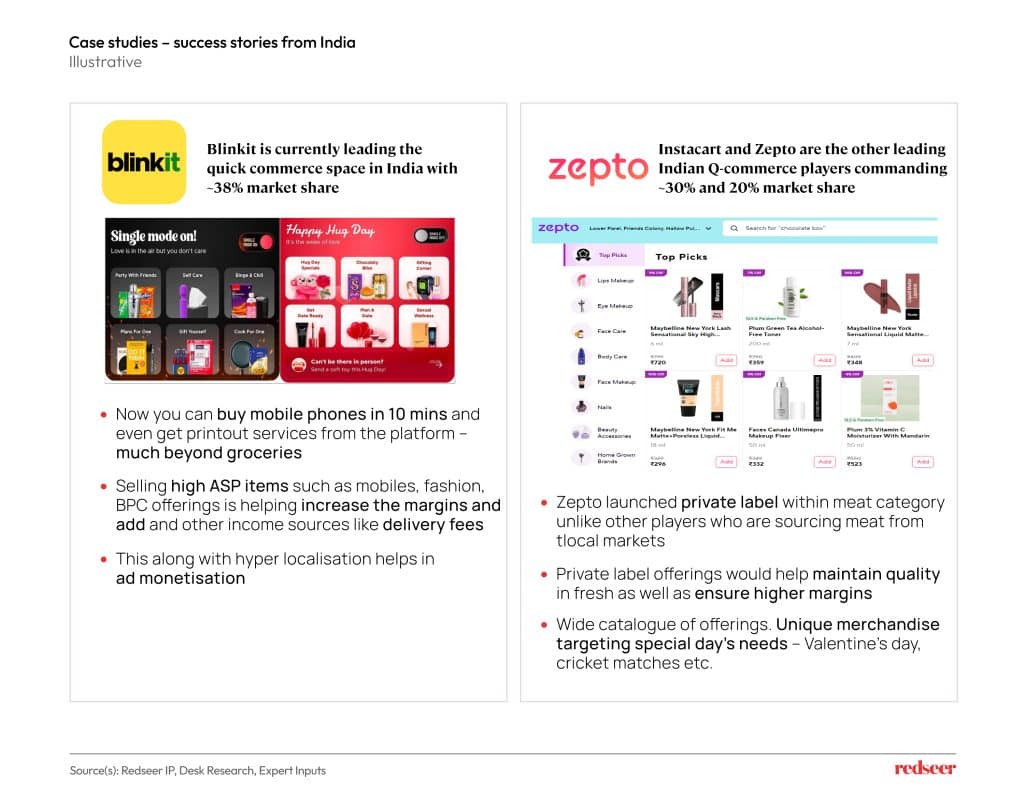
Looking at all the examples from India, one of the rare geographies where quick commerce seems to be picking up pace, we can draw the hypothesis that quick commerce in isolation can be a tough nut to crack especially if it’s focused on just groceries and FMCG. The successful playbook for quick commerce can be:
- Expanding to newer categories to mimic the platform more like a horizontal e-commerce play.
- Targeting the masstige and premium cohorts who are willing to pay the price for greater convenience.
- Quick commerce operates as one of the offerings within the wider umbrella of products which can be horizontal e-commerce, food delivery, ride-hailing, etc.
Can Indonesia Unlock Big Gains with India’s QC Playbook? (Spoiler: Yes, But…)
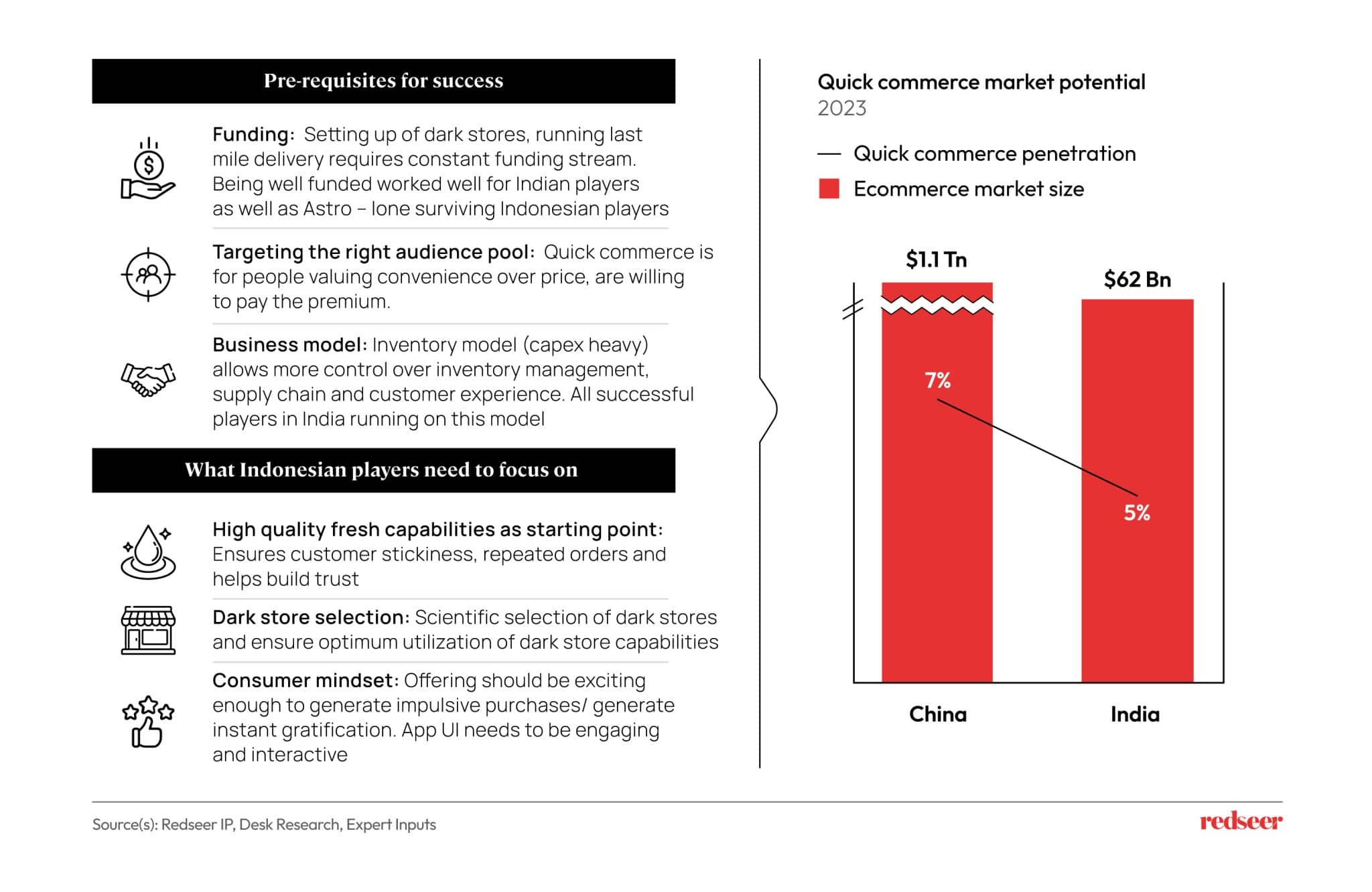
Thus, for quick commerce to work, players need to meet the pre-requisites on the funding and customer side along with focussing on the right operational metrics as evidenced by the players that were successful in India.











